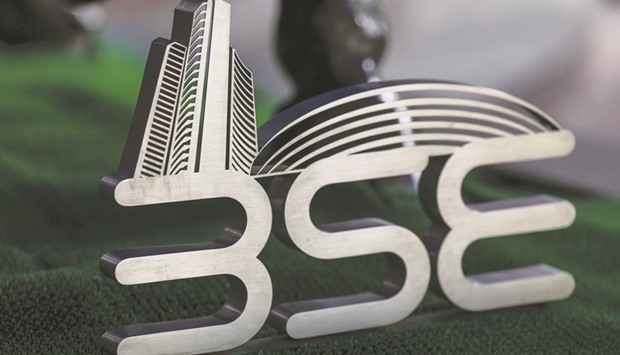Indian stocks succumbed to a late selloff, with the benchmark index giving up gains to end little changed, as the uncertainty over the recall of high-value currency notes persisted and overseas investors remained net sellers of local assets.
A gauge of lenders capped its biggest three-day loss in nine months, while an index of fast-moving consumer goods fell to a five-month low. A measure of automakers rose 1%, paring an intraday advance of 3.1%.
The benchmark 30-share Sensex fell 5.94 points, or 0.02%, to 26,299 points at the close yesterday.
The Sensex has tumbled 4.7% since last Tuesday on concern the government’s shock decision to scrap 86% of the nation’s currency notes in circulation will hurt demand and company profits.
The losses have coincided with turmoil in global markets after Donald Trump’s surprise election victory.
The gauge climbed as much as 1.2% yesterday before giving up all the gains in the last half-hour of trade.
“Given the uncertainty around the demonetisation scheme, no one wants to carry forward their positions,” Paras Bothra, vice-president of equity research at Ashika Stock Broking, said by phone from Mumbai. “There’s uncertainty about which companies will be impacted in the near term and which ones would benefit.”
Overseas funds pulled a net $343mn from Indian shares on Tuesday, taking the month’s outflow to $903mn. Local institutional investors, in comparison, have bought a net $740mn of shares in November, data compiled by Bloomberg show.
Investors are trying to assess the impact of the black money purge on company profits.
At risk is a strengthening earnings picture that has seen three straight quarters of gains, after operating profit fell in every quarter of 2015. Finance Minister Arun Jaitley said on November 9 the move will damp consumption in the short term.
Operating profit for the Sensex companies has risen 13% in the September-quarter reporting season currently underway, after increasing 4% and 6% in the previous two quarters, according to data compiled by Bloomberg. Net incomes at companies in the index may rise 23% over the next 12 months, the data show.
“The market will remain volatile and under pressure until the cash crunch eases,” R K Gupta, managing director at Taurus Asset Management Co, which oversees $480mn in assets, said by phone from New Delhi. “Margins will get impacted for 70% of the publicly-traded companies.”
The Sensex has increased 0.7% this year and trades at 15.5 times projected 12-month earnings, the cheapest since May.
Meanwhile the rupee yesterday weakened for the fourth consecutive session to hit a fresh five- month low against the US dollar after the country’s trade deficit widened to a 10-month high. A fall in other Asian currencies also dampened the trading sentiment.
The rupee closed at 67.95 a dollar—a level last seen on June 28, down 0.31% from its previous close of 67.74. The currency opened at 67.71 against the US dollar and touched a low of 67.99—a level last seen on June 27. So far this year, the Indian has fallen 2.5% against the dollar.
Bond yield fell in the sixth out of seven trading sessions and hit a fresh seven-and-half year low.
The benchmark 10-year government bond yield was trading at 6.445%—a level last seen on 21 May 2009, compared to Tuesday’s close of 6.534%. Bond yields and prices move in opposite directions.
Asian currencies closed lower after dollar index extend its rally triggered by Donald Trump’s victory last week in the US presidential election. US retail sales figures were stronger than forecast, while Federal Reserve Bank of Boston president Eric Rosengren said the central bank would tighten monetary policy faster with more fiscal stimulus.
The president-elect’s proposals to increase spending and cut taxes are fuelling bets economic growth will accelerate and push the Fed to raise interest rates.
Philippines peso was down 0.6%, Japanese yen 0.45%, Singapore dollar 0.39%, China Offshore 0.27%, China renminbi 0.27%, Malaysian ringgit 0.22%, Thai Baht 0.17%. However, Indonesian rupiah was up 0.18%, South Korean won 0.08%.

The Sensex closed down 0.02% to 26,299 points yesterday
